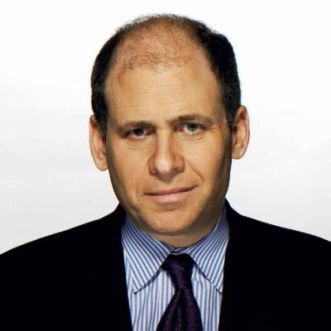This idea of self-restraint and the press is a debate that often comes up. The last several weeks has seen hundreds of thousands of classified U.S. documents made public by founder Julian Assange and WikiLeaks.

To Assange “all transactions between nations and leaders should be transparent,” Time magazine wrote in a recent profile. It’s interesting to note that contrary to his own transparency doctrine, Assange rigorously protects all his sources. We never know who the source(s) are, their background(s) much less what their motives might be. Something that is fundamental in most reporting.
During the summer of 2001, the media’s coverage of Congressman Gary Condit’s relationship with missing intern, Chandra Levy, raised questions about the standards and responsibility of the press. I explored these questions with Newsweek magazine’s senior editor, columnist, and contributor, Jonathan Alter during that “feeding frenzy.”
“The idealistic and principal purpose of journalism is to shine a light in dark corners and provide not just information but knowledge and education for citizens so that they can use that information and act on it. But journalism is also a business. If you didn’t have a way to pay the bills, you couldn’t do good journalism. So the purpose of journalism is, to my mind, secondarily, to make money because if it doesn’t make money, it doesn’t exist.
“For me, there’s no firm standard because journalism is not a science, and fortunately, it’s not a business with inflexible standards. It very much depends on the situation. Gary Condit’s private life would be of no journalistic interest, nor should it be, if the young woman hadn’t been missing. I could tell you of many people that I’ve known on Capitol Hill and heard rumors that they were having affairs, and I haven’t checked out any of them. But, if they were related to a possible murder, then that would be a different story.
“Now, just because I believe that the Gary Condit story deserved some coverage doesn’t mean I believe it should have been covered day and night. So, I think the media lost some proportion on it.
“One of the problems with a lot of the cable coverage of the Condit business is that it didn’t “advance the ball” and was filling airtime without bringing anything new. At Newsweek, the stories that we did on the Condit/Levy matter all advanced the story. And, if it did not advance the story in some fashion, we didn’t do it. However, when you have 24-hour cable and people are lapping it up, you have a strong inclination to want to give them more of it even if you don’t have anything new to report. And that’s when news values get corrupted because they are going on the air with nothing more to say. At that point they’re moving from journalism to pandering, marketing, and promotion.
“Journalism has become so much more commercial and so much more market-oriented in recent years that it’s in danger of being seen as just another business. It is a business, but it shouldn’t be just another business. When that happens it becomes much more difficult to carve out first amendment protections.
“I think that journalists have to fight to do stories that are important, fight to make sure that stories are not being hyped or blown out proportion, and fight internally for the right kind of journalism. Most people in the business do have the right intentions. They’re really not cynical or they wouldn’t be journalists. You can pose as being cynical, but you can’t reallybe cynical and get up every morning and do what’s required to be a reporter.
“Obviously some sources are more reliable than others. Newsweek is more reliable thanThe Drudge Report or The National Enquirer. But there are other occasions where, because they care less about accuracy, those publications might get a story first. So, sometimes journalists have to be willing to sacrifice a little bit of timeliness for accuracy, and that’s always a difficult challenge. And it has to be compelling. That’s a requirement of journalism as well. It’s not enough to say, ‘Eat your peas.’ It needs to benefit from great storytelling. A good story is a mixture of fresh reporting and smart analysis of what’s wrong, and also right, with a person or an institution.
“What I try to do is give context to things. And I think that’s an important part of journalism that is, in the press of events and on deadline, often forgotten.”
Comments










